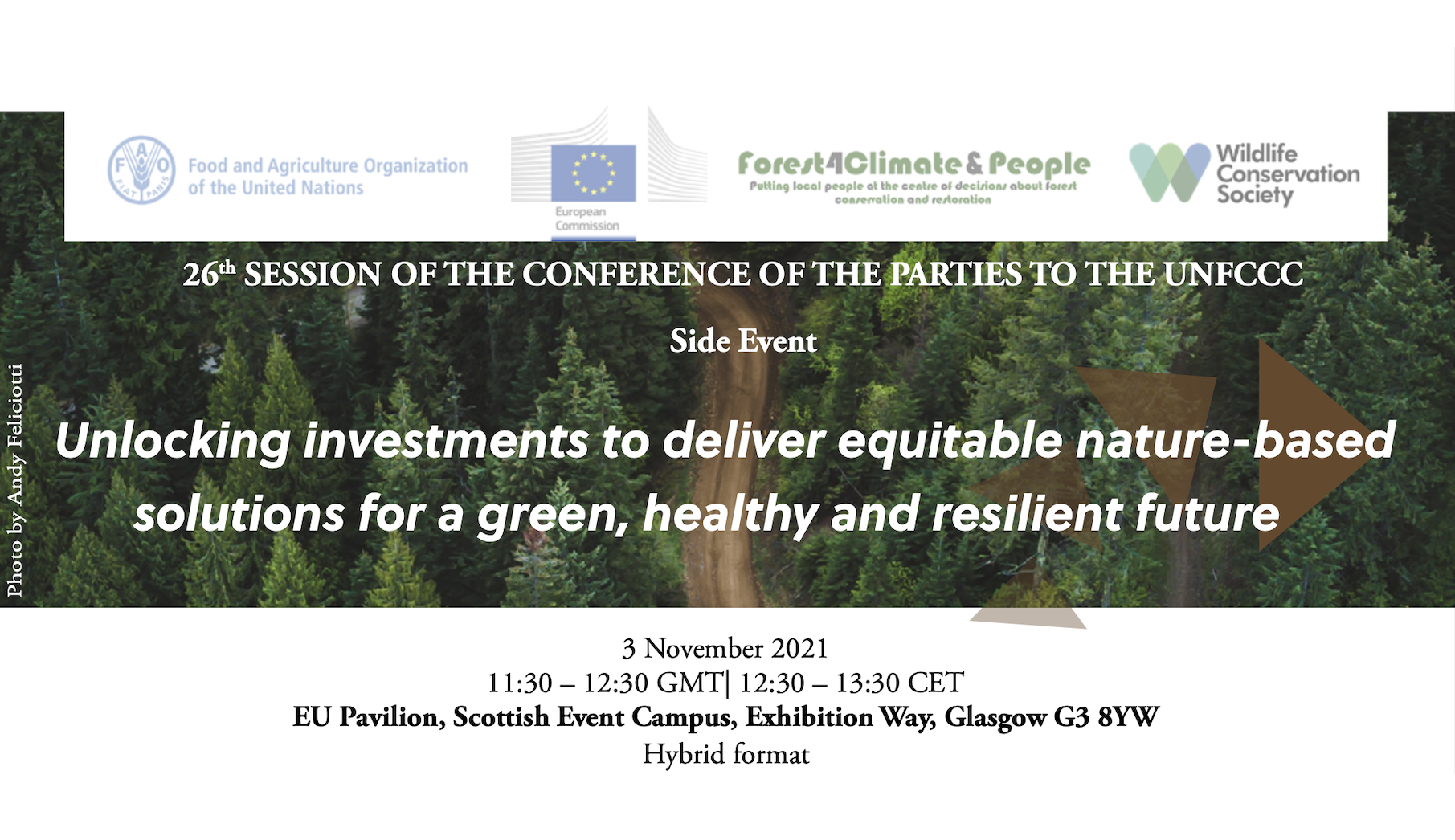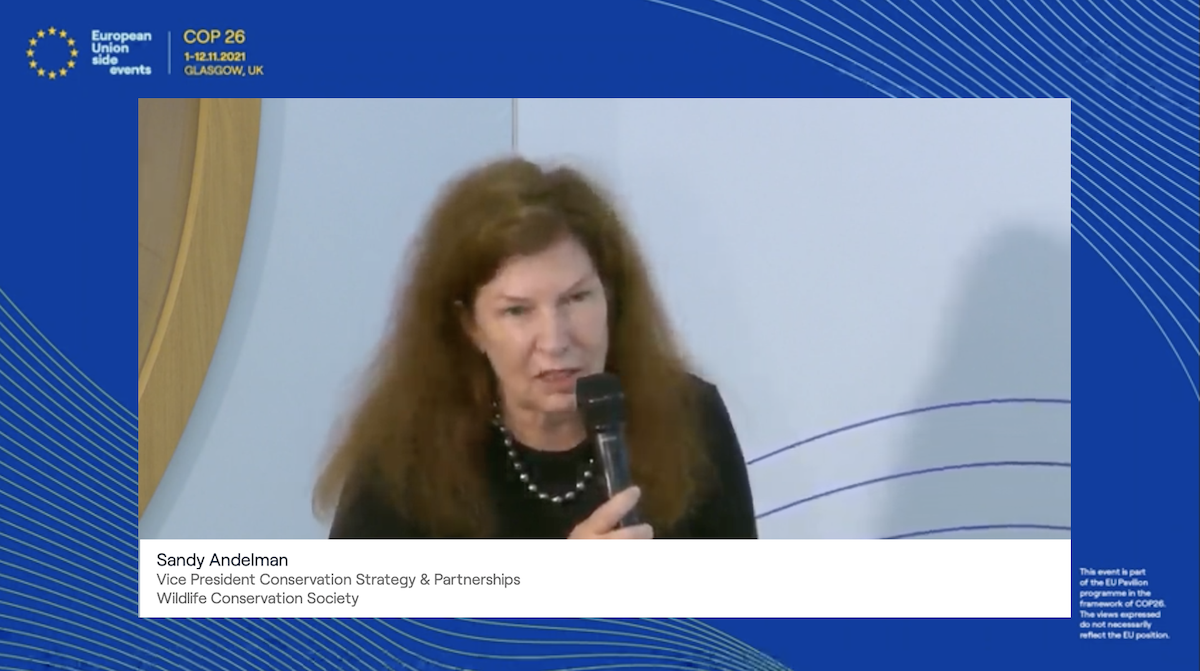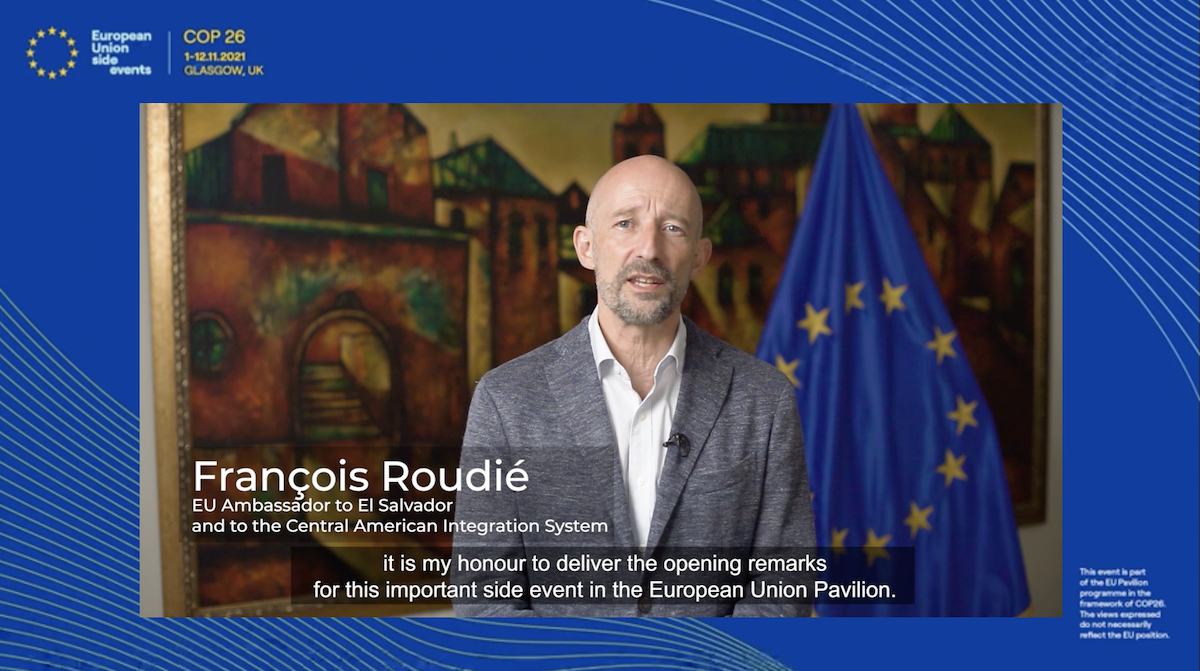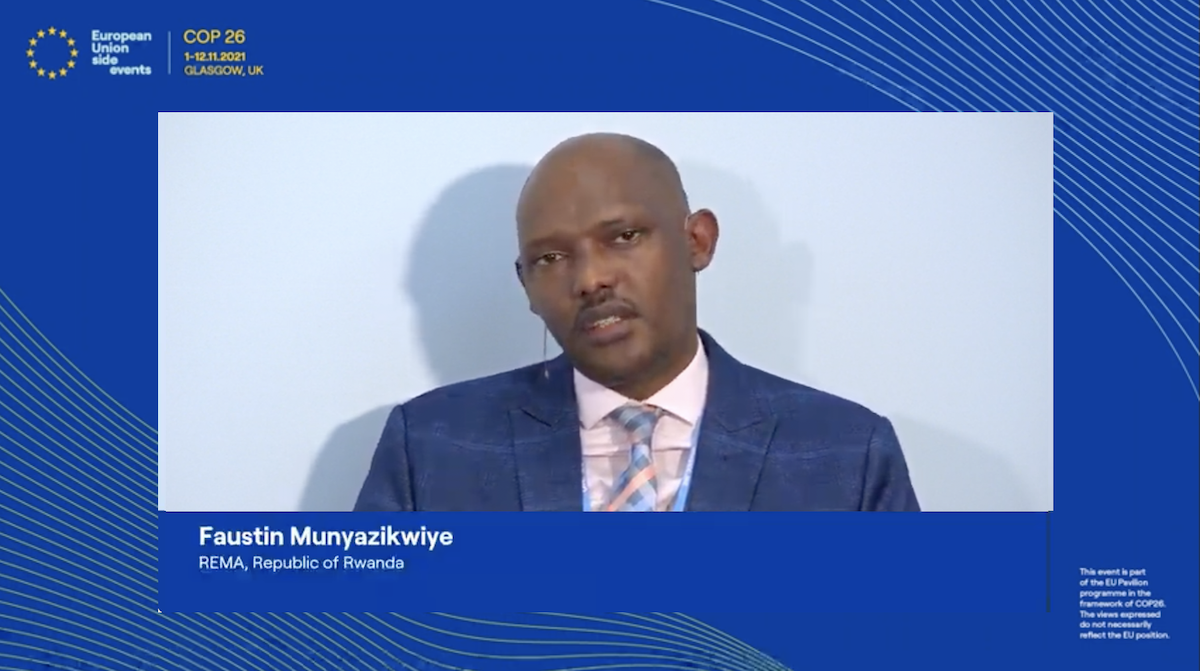COP26 in Glasgow
WCS joined global leaders at COP26 to discuss actions to address the climate crisis. At the event, we focused on the critical importance of natural ecosystems, especially forests, for reducing carbon emissions, removing carbon from the atmosphere, and regulating global and regional climate regimes.
The 26th meeting of the Conference of the Parties to the UN Framework Convention on Climate Change (COP26) took place in Glasgow from October 31st through November 12, 2021. WCS sent a delegation to CoP26 and supported policies that focus on adequately addressing the climate crisis in the critical decade ahead, particularly in the context of biodiversity. A primary imperative is drastic reductions in fossil fuel emissions during this decade (and their elimination by 2050), consistent with its core mission, and the critical importance of natural ecosystems, especially forests, for reducing carbon emissions, removing carbon from the atmosphere, and regulating global and regional climate regimes. These Natural Climate Solutions or Nature-based Solutions (NbS) also protect biodiversity and align with ongoing biodiversity negotiations, including 30x30 – the effort to protect and conserve at least 30 percent of the planet’s land and water by 2030—and efforts to protect and retain intact ecosystems (forests, coral reefs, and others).
WCS co-organized a side event at the EU pavillion jointly with the XV World Forestry Congress Secretariat of the Food and Agriculture Organization (FAO) and the Korea Forest Service, the Forest 4 Climate & People project and the European Commission. The session titled 'Unlocking investments to deliver equitable nature-based solutions for a green, healthy and resilient future' brought together state and non-state actors including representatives of government, finance institutions, civil society and local communities for a dynamic discussion on the role of forests and forest communities in supporting sustainable business models for NbS (see flyer). It highlighted why empowering local communities to be full partners in NbS is so vital, and showcased how new and innovative approaches to finance policy and investment can contribute to scaling up climate action towards sustainable forest, agriculture and land use management.
The panel included:
- Dr. Sandy Andelman, Vice President, Conservation Strategy & Partnerships, WCS
- Mr. François Roudié, Ambassador of the European Union in El Salvador & to the Central American Integration System
- Mr. Eunsik Park, Secretary-General, XV World Forestry Congress Secretariat, Republic of Korea
- Mr. Pascal Martinez, Senior Climate Change Specialist, Global Environment Facility (GEF) Secretariat
- Ms. Mette Wilkie, Director, Forestry Division, Food and Agriculture Organization of the United Nations (FAO)
- Hon. Dr Baomiavotse Vahinala Raharinirina, Minister of Environment and Sustainable Development, Madagascar
- Hon. Dr. Jeanne D’Arc Mujawamariya, Minister of Environment, Republic of Rwanda


During the side event, Dr. Sandy Andelman, WCS Vice-President, Conservation Strategy & Partnerships, highlighted the critical role of Intact Forests as Nature-based Solutions. Around 30% of carbon emissions are removed by intact forests and other ecosystems each year globally, and additional action on forests and other land use at a global level could reduce the remaining net emissions by a further 30% or more. In particular, forests with high ecological integrity are more resilient to climate impacts.

Mr. François Roudié, Ambassador of the European Union in El Salvador & to the Central American Integration System, presented the EU-funded project to support WCS’s Five Great Forests initiative, a successful collaboration to protect Mesoamerica’s five largest forests—the last remaining intact forests from Mexico to Colombia critical to the region’s people, culture, biodiversity, economic health, and resilience to climate change. Through partnerships between governments, civil society, research partners, and Indigenous Peoples, the initiative aims to transform agriculture and food systems and protect intact forested ecosystems in Mesoamerica’s Five Forests, in order to adapt to and mitigate climate change, protect biodiversity, and improve livelihoods.

Mr. Faustin Munyazikwiye, DDG of Rwanda Environment Management Authority, spoke on behalf of Minister Mujawamariya and highlighted the longstanding parternship between WCS and Rwanda. WCS works to restore the degraded forest areas of Rwanda’s Nyungwe Forest National Park. As June 2021, the Minister of Environment and WCS embarked on the development of a program aimed to build Resilience of Vulnerable Communities to Climate Variability in Rwanda’s Congo Nile Divide Through Forest and Landscape Restoration that will be submitted to the Green Climate Fund (GCF).
TWEETS
EU Climate Action
WCS
WCS EU